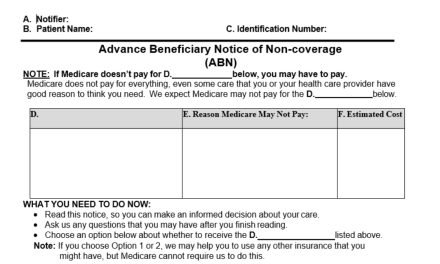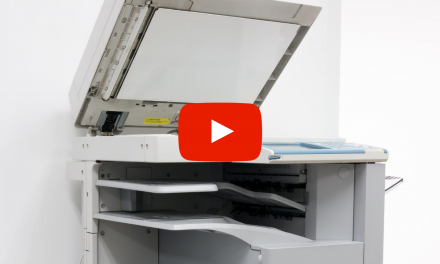
Employee Credit Checks

As a final step before hiring a staff member, employers may want to request a credit history from a candidate to whom they conditionally offer a job. These employers typically withdraw the job offer if the candidate’s credit report is returned with less-than-stellar results.
The ICS has received member calls asking whether employers may legally obtain and use credit information to make employment decisions. Some may debate whether a credit score is a valid predictor of job performance; nonetheless, any Illinois business that wishes to obtain this type of report must follow all applicable federal, state, and local laws and regulations.
Important Note: This article discusses an employer’s use of an applicant’s “credit report,” “credit history,” and “credit score,” used interchangeably. They are usually obtained from one of the three major U.S. reporting agencies — Equifax, Experian, and TransUnion– and are to be distinguished from broader investigative consumer reports that include criminal history and criminal background checks. For information about a hiring employer’s use of an applicant’s criminal history, see this ICS article.
The employer first must apply Illinois law to determine whether the business is permitted to request a credit report for a specific job and applicant. If so, the employer then is required to follow the federal Fair Credit Reporting Act in providing the candidate with disclosures and reports about the use of the information, detailed below.
First Analysis: The Illinois Employee Credit Privacy Act
In Illinois, an employer is not permitted to ask for a credit history as a condition of employment for every type of job. The Illinois Employee Credit Privacy Act (ECPA) (820 ILCS 70) substantially narrows the types of job positions for which an employer may request or order an applicant’s credit report. If the position in question does not meet certain criteria, an Illinois employer may not require an applicant’s credit report, ask about the applicant’s credit history, and may not refuse to hire the individual solely on the basis of a negative credit report. Applicants who are wrongly required to provide credit reports may sue the prospective employers for money damages or other relief and may recover attorney’s fees if the applicant wins the case.
Under the ECPA, to permit an inquiry into an applicant’s credit history, “a satisfactory credit history” must be an “established bona fide occupational requirement” of the position. To permit an employer to ask for a credit history, at least one of the following must apply:
- State or federal law requires bonding for the position.
- Position duties include unsupervised access to cash or assets worth $2,500 or more.
- Duties include signatory power over transactions of $100 or more each.
- The position is managerial and involves setting direction or control of the business.
- The position involves access to personal or confidential information, financial information, or trade secrets.
- The position meets criteria in other regulations that mandate the obtaining of credit information.
Illinois Court Cases
In reviewing these qualifiers, it appears that it is permissible to request a credit check for some, but not all, physician office staff positions. Rather than listing specific jobs, the law requires the employer to use the six factors listed in the list above and draw a reasonable conclusion as to whether a particular job meets any of the criteria.
Illinois courts have issued opinions in two cases that may indicate courts are not in favor of pre-employment credit checks, unless the job position comes clearly within the category where a credit check is an occupational requirement. In these cases, as in many, “access to personal or confidential information” is the deciding job element that would lead an employer to conclude that a credit report is permitted. However, even the Illinois courts have not always been clear what is intended by “unsupervised access to personal or confidential information,” because the term “access” is not defined in the law.
The Nieman Marcus Dress Sales Associate Case
In the first court case, decided by an appellate court in 2016, the plaintiff applied for an entry-level position at Neiman Marcus as a “Dress Collections Sales Associate.” Sales associates were instructed to encourage customers to apply for store credit cards, which included the sales associate writing the customer’s personal information on a form and then locking it in a drawer or giving it to a manager. When the plaintiff applied for the job, Neiman Marcus required a pre-employment credit check, because it believed the job would have given her access to personal and confidential consumer information when she accepted store credit card applications from customers. Nieman Marcus then withdrew the employment offer based on plaintiff’s negative credit report.
The court ruled that these “Dress Collections Sales Associates” were merely acting as “conduits” for the information, which does not qualify as “access” under the ECPA. The court noted that the intent of the ECPA is to help persons who need employment and that “performing simple tasks at the cash register” does not amount to “access,” so the plaintiff should not have been denied the job. Ohle v. Neiman Marcus Grp., 65 N.E.3d 850, 408 Ill. Dec. 374 (Ill. App. 2016).
The Commonwealth Edison Customer Service Representative Case
In contrast, the same appellate court in 2019 ruled in favor of the employer, Commonwealth Edison, in another applicant credit check case. ComEd had extended the plaintiff a conditional offer of employment for a temporary, part-time entry-level position as a customer service representative. After reviewing plaintiff’s credit report, ComEd withdrew the job offer due, in part, to negative information on her consumer report. In ruling that ComEd had the right to require credit reports for the customer service representative position, the court noted that the job included collection of full Social Security numbers, driver’s license numbers, bank account information, dates of birth, and address history. The fact that the job was considered “entry-level” was irrelevant, because the nature of the customer information was personal, and the employee was relatively autonomous and not closely supervised in the process of gathering the information. These facts viewed as a whole were enough to constitute “access” to private information. Rivera v. Commonwealth Edison Co., 145 N.E.3d 677, 438 Ill. Dec. 141 (Ill. App. 2019).
The results in these cases show that even courts may not always agree on interpretation of a law. In fact, in a concurring opinion in the ComEd case, Justice Aurelia Pucinski noted respectfully that she believed the Nieman Marcus case had been incorrectly decided. She wrote that the dress sales associates collected a great deal of personal information that could easily be photographed or otherwise saved, which she construed as “access” under the law. Justice Pucinski believed that this type of access was sufficient to allow a prospective employer to request a credit check. Given the potential liability for breach of a customer’s private identity and financial information, Justice Pucinski’s interpretation seems more realistic and protective of both consumers and employers alike.
In applying these cases to the chiropractic physician office, it does appear that many staff positions involve access to personal identity and financial information, such as birthdates, addresses, Social Security numbers, credit card and bank account numbers. The law does not say whether access to HIPAA protected health information would be included; however, most employees who have access to health information also have access to other personal information that would allow the employer to obtain a credit report. On the other hand, personnel such as cleaning or maintenance staff would not have access to personal information as part of their job duties, and, therefore, an employer would not be permitted to ask for their credit reports.
Federal Law – the Fair Credit Reporting Act
Even if a job qualifies under Illinois law to allow an employer to request the applicant’s credit report, the employer also needs to follow steps required by the federal Fair Credit Reporting Act, (FCRA), 15 U.S.C. Sect. 1681.
The FCRA requires the employer to provide disclosures to applicants before it takes steps to obtain a report:
- Notification and Authorization: An employer must notify an applicant if it intends to check credit and must get the applicant’s written permission. The Fair Credit Reporting Act requires the notice to be “clear and conspicuous” and not buried in other language. The notification and authorization form may be found here.
- Pre-Adverse Action Notice: If an employer might not hire an applicant based on a credit report, it must to send the applicant a “pre-adverse action notice,” including a copy of the report used and a Summary of Rights.
- Allow Time for Applicant to Respond: The law does not provide an exact waiting period, so it is recommended that an employer wait for a reasonable amount of time, at least a few business days, to allow the applicant to explain or respond to negative information.
- Notice of Adverse Action to Applicant and Right to Free Copy of Credit Report: If an employer decides not to hire the applicant based on the credit report, the employer must follow up with a post-adverse action notice, giving the name of the credit report agency, its contact information and informing of the right to get a free copy of the report within 60 days.
Employers who decide to withdraw an employment offer based on a negative credit report must take the additional steps outlined above. Therefore, a credit report may be used to make hiring decisions only if the employer complies with both the Illinois Employee Credit Privacy Act and the Fair Credit Reporting Act.



















